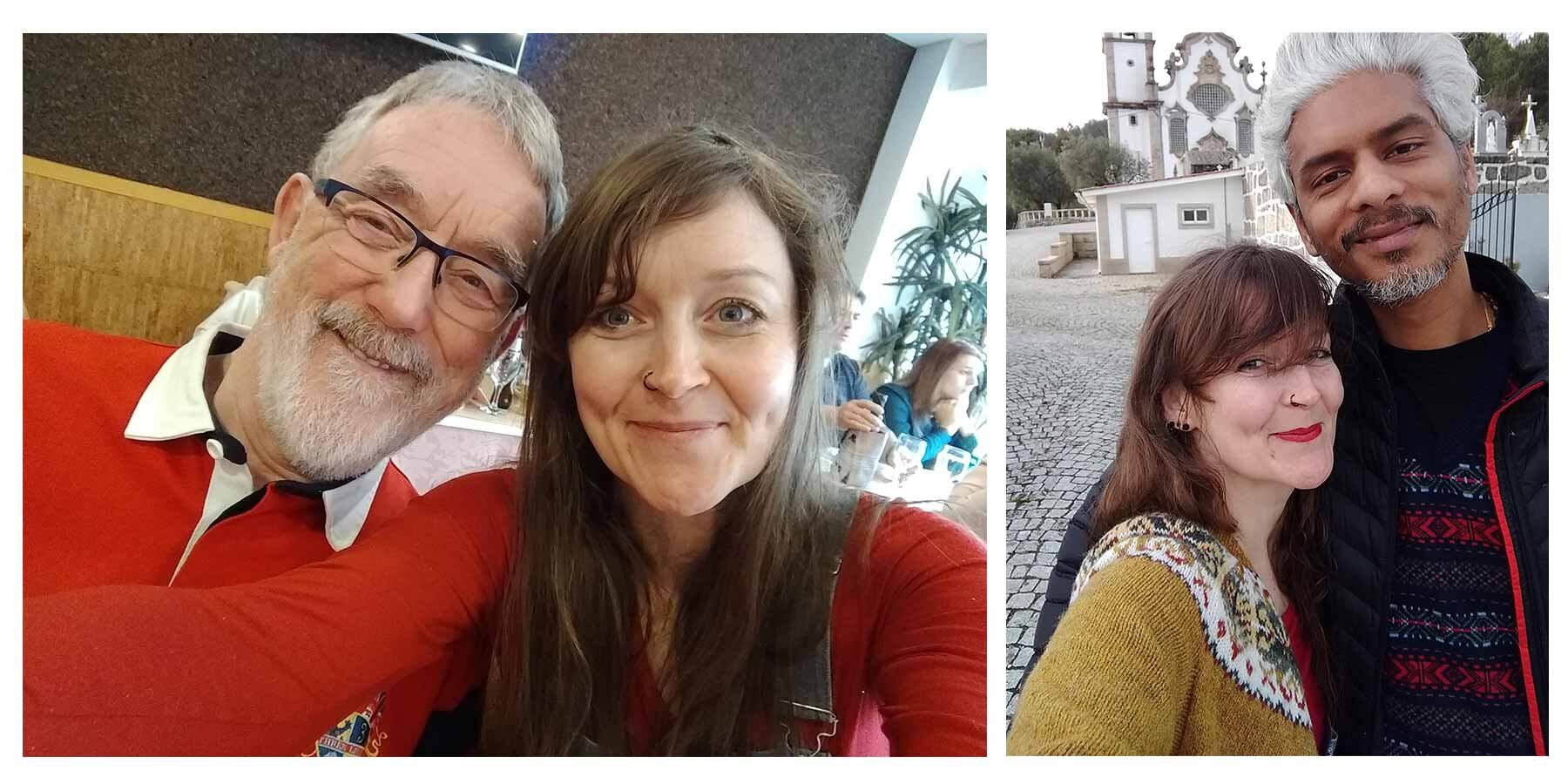Vaila: silver linings in Portugal
Vaila Erin Bhaumick was born in Glasgow, currently lives in Portugal, but calls Shetland home. Having travelled extensively over the last 20 years, she feels it’s time to put some of her life experience into words. After taking part in a course at the Digital Nomad Writing Club, she is ready to embark on her writing career. Here she gives us a glimpse of life with her husband in the Portuguese hinterlands.
Before COVID-19 hit, my husband and I had already been unwittingly preparing for self-isolation—tucked away in a tiny village in rural Portugal. If Coronavirus was the Empire striking back, we had definitely done our Jedi training! As a result, nothing much changed for us in the beginning. But then ‘it’ arrived.
First came the panic buying, but unlike in other countries, Portuguese shoppers’ first priority wasn’t toilet paper, but wheat flour. In a country where bread is ubiquitous, you know things are serious when the bakery van starts to reduce its daily rounds, and the vendor looks like an extra from Outbreak.
In this area, there is a vast number of elderly people. With this in mind, the initial reaction to the pandemic was surprising. Although Portugal imposed a lockdown early, the atmosphere here was jovial, like a festa. Residents who live abroad returned home and the village swelled with folk I’d never seen before. Countless people were milling around, greeting one another like long lost friends.
Unfortunately, that has all changed. Our local area has been one of the hardest hit by the virus in the country and it wasn’t hard to understand why. Hordes of ex-pats returned for Easter and presumably brought Mr Covid with them. Social distancing, masks, and gloves are now evident everywhere and the lack of warm greetings has laid a blanket of solemnity over the place.
There is a sliver of a silver lining. This place has taken on an almost ethereal beauty—lush green hills and low-lying mist prevail. The contrails overhead are no more and the silence is wonderfully eerie.
Vaila with her father (left) and husband (right)
Something that jolted me out of my watercolour utopia and fervent Coronavirus rabbit-holing was my dad’s rather sudden and unexpected heart attack. With no previous heart problems, it came as a big shock, not least to him. He, rather pragmatically, described the event as “disappointing”, feeling that his body had let him down. I advised him not to apportion blame and that the time we are living through is extremely anxiety-inducing, with the collective conscious on ‘high alert’. If only I could take my own advice!
Having lived abroad for the majority of my adult life, I’m no stranger to keeping in touch from afar. But this was different—even if I had wanted to go home, I couldn’t have, and it was heartbreaking. Luckily, after five days in hospital in Shetland, and an air ambulance flight to the mainland for treatment, he was home looking out on the unusually calm blue sea a week later.
It made me empathise in a big way with those who have loved ones in hospital at this time, and can’t see them, nor hold them close in love and solidarity. A softness returned to my own heart, as I thought about my parents, siblings and our early life.
It also made me empathise with those who had travelled back to the village here, perhaps to care for elderly parents. I had blamed them before for spreading the virus, but their hearts were in the right place, and there’s no way to know who brought it.
My dad, like the Portuguese, loves a crusty loaf, and I know he would be grateful for the bread lady too. He always says, in a Jedi master kind of way, “there’s no such thing as a bad experience”. This is no exception—learn, we must, from this experience, even if it is simply not to blame others or yourself for a faulty heart.


